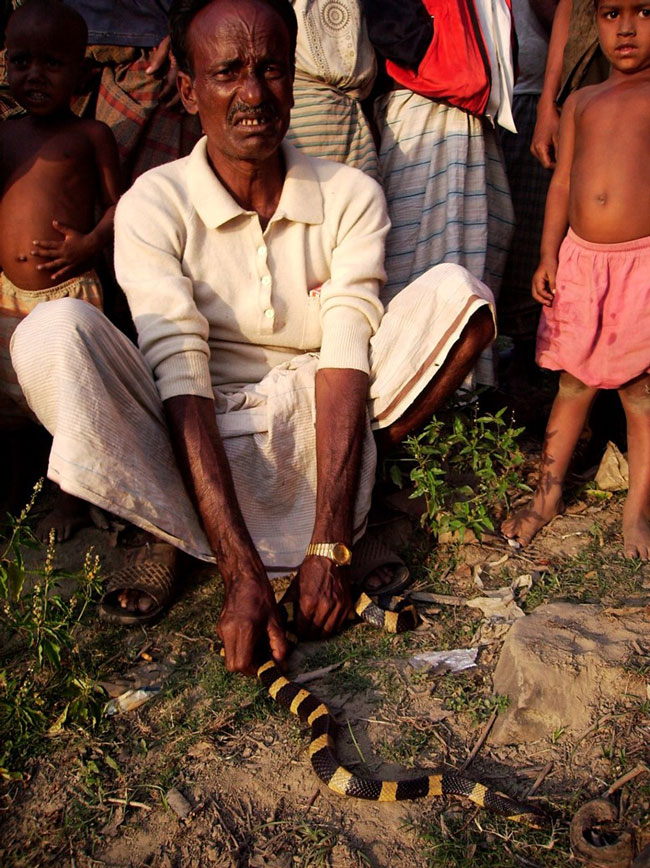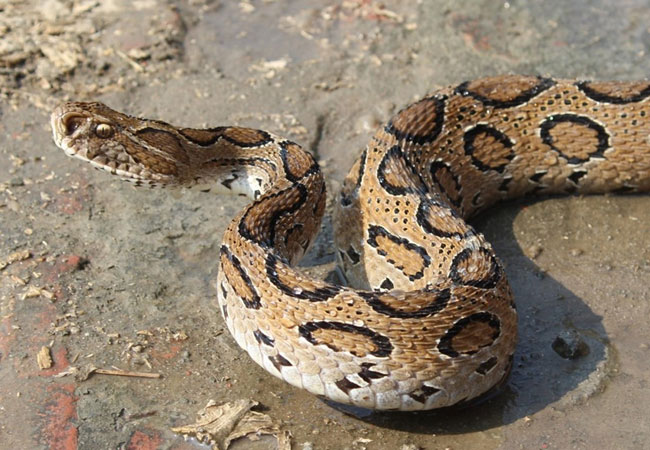In cooperation with East Yangon University in Myanmar and the Max-Planck Institute for Chemical Ecology in Jena, researchers at Goethe University Frankfurt are exploring whether the dangerous Russell’s viper can be driven off using the scent of another snake, the banded krait. The highly venomous Russell’s viper causes thousands of fatalities per year among farmers, especially in the rice fields of Asia. The scientists in the team led by Dr Ulrich Kuch from the Institute of Occupational Medicine, Social Medicine and Environmental Medicine at Goethe University are scientifically investigating reports from the rural population that the smell of a banded krait will drive away Russell’s vipers. The banded krait, which is also venomous, eats other snakes, including Russell’s vipers.
If it proves effective, the team aims to characterize the scent molecules that have deterrent activity with the hope of deriving a repellent.


More information about the project can be found on the webpage of Volkswagen Foundation which supports the project as part of its funding initiative “Experiment!”: “Alliance with the Serpent King”.








